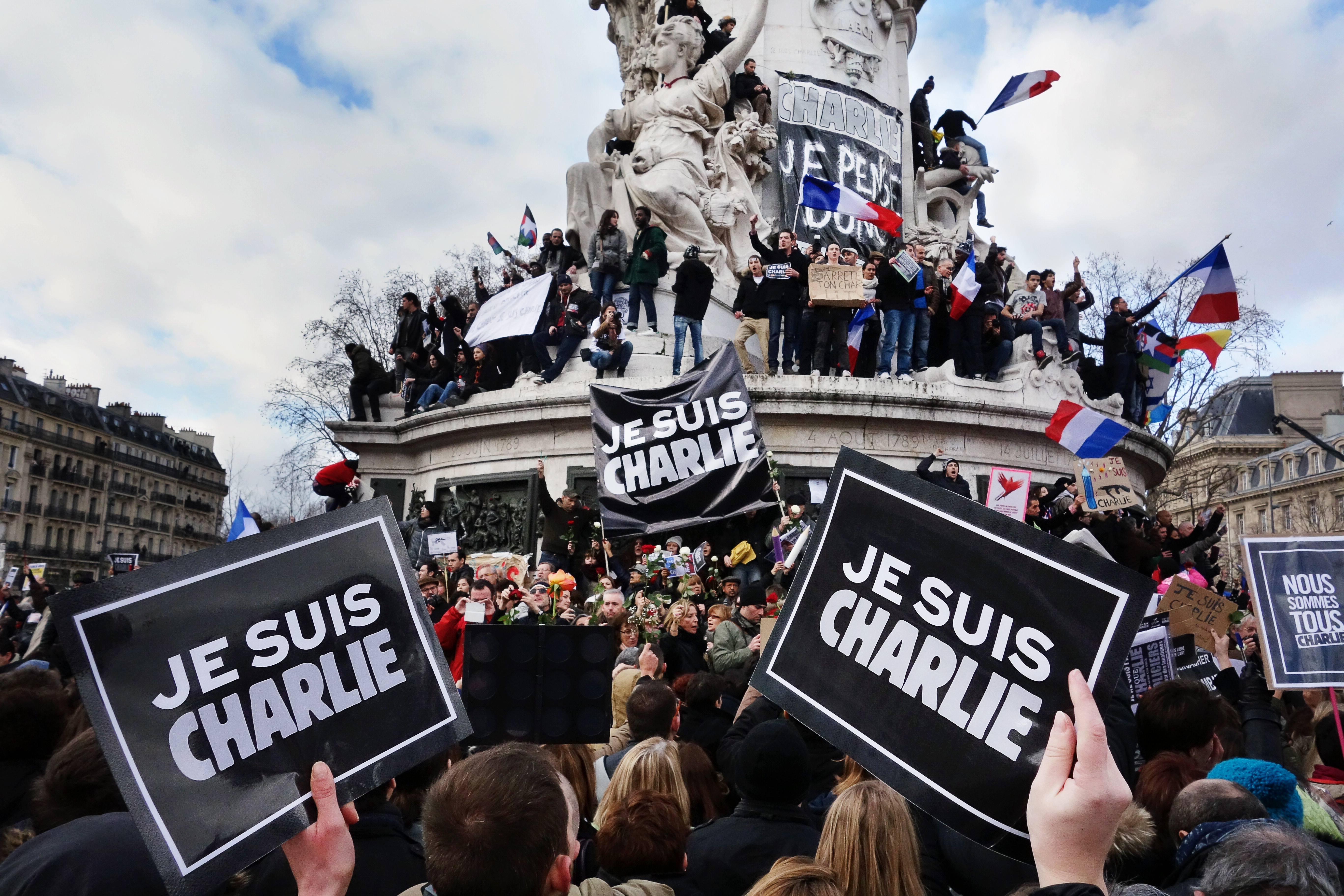Just after 12 people were murdered at the headquarters of French satirical magazine Charlie Hebdo, my Facebook feed was an avalanche of grief.
Je Suis Charlie dominated my newsfeeds — people expressed a profound sense of sadness of the unthinkable horror that played just after noon that afternoon on January 7.
“Imagine 12 people being killed in a left-wing publication in Canada,” one friend said to me. “12 people shot at rabble. How would you feel about that?”
The answer is obvious. It would be a tragedy, just like the attack at Charlie Hebdo was a tragedy.
The artists and writers murdered at Charlie Hebdo produced satire. They mocked power structures. They ridiculed religion. They demonstrated the apex of Western freedom of speech: nothing is sacred and everything should be open to ridicule.
I took issue with this narrow, Western-based analysis of Free Speech. I argued that progressives need to be smart in how we respond to debates about free speech. We cannot simply demand free speech that is absent of an analysis of oppression, as it is a concept that already privileges the privileged few among us. The oppressed, many of who risk their lives for their free speech, are marginalized or ignored in these debates.
If satirical cartoonists are on the front lines of defending free speech in the Western world, surely students are on the front lines of defending free speech everywhere else. There are students around the world who risk their lives to go to school every day. They defy intimidation. They fight for the most basic access to free expression: the pursuit of knowledge.
Why, then, hasn’t my Facebook feed exploded in grief over the news that 148 people (142 students) were murdered at Garissa University College? Why has the only memorial I’ve seen shared on social media been the gruesome image of slaughtered bodies sprawled across the floor of one of the campus buildings?
Where are those progressive commentators, previously crawling over top of one another trying to out-analyze each other on the nuances of the situation at Charlie Hebdo? Why isn’t my newsfeed a flood of analysis of Al-Shabab, Al-Qaeda and the right of all people to go to school in peace?
Why hasn’t anyone sent me the message: “Imagine how you’d react if 148 students were slaughtered in York University’s Vari Hall?”
Kenya is just so foreign. It’s so far away. And people over there die all the time probably. It’s not like France. It’s not like Canada. Garissa University College isn’t the University of Toronto.
This massacre is the second of its scale in the past five months. In December, 145 people (132 children) were murdered Army Public School and Degree College in Pakistan. I know, Pakistan is really foreign too. It’s far enough away that our closest military ally can use unmanned aircraft to bomb whoever they deem to be bombable, without too much opposition.
There’s a word for this: racism. Racism is at the heart of why white peoples’ murders are elevated and non-white peoples’ murders are forgotten. Racism is why we think that white people are most targeted by extremist fundamentalists (we’re not). Racism is why some lives are valued more than others.
And while understanding how destabilizing foreign powers has helped to popularize and galvanize religious fundamentalists can be very complicated, it isn’t true that these events are too complicated for us to understand. These victims are as mournable as any murdered satirist or any murdered American university student.
This past weekend, some volunteers are re-starting a campaign to dredge the Red River to look for bodies of missing Indigenous women. Last year, seven bodies were pulled out of the river. Winnipeg is in Canada and still white Canada remains ambivalent to this issue. How else can one explain Stephen Harper’s callous reaction to calls for an inquiry? Clearly, proximity of tragedy isn’t the issue here.
White supremacy and racism get in the way of sober, consistent analysis, even for the most progressive of (white) progressives among us. Is it asking too much of people to invest emotional energy into condemning mass murder in Kenya (or Pakistan, or Syria, or Iraq, or etc.) if they can barely do the same for murders in their own country?
It depends on who “people” refers to. Meeting tragedy with ambivalence (or slight horror that dissipates once you’ve clicked on another link) is a privilege. It’s actually at the core of white privilege. After all, when you’re not dealing with the emotional weight of the death of someone who looks like you, you get to pick and choose what upsets you.
This isn’t good enough. Progressive voices who defend free speech must defend the free speech of oppressed people most vigorously. This includes Kenyan Christian students, targeted based on their religion. This includes Indigenous women targeted due to centuries of colonialism that has tried to undermine their worth and value.
In a world where these kinds of attacks seem relentless, it’s a daunting challenge. But it’s of critical importance. We can spill pixels analyzing celebrity idiocy until our fingers are numb. We can debate the words of an Oscar winner or whether or not the next host of the Daily Show hates women. But if we swoop in to defend the lives of white men while at the same time remain silent when ten times as many non-white people are murdered, each by militants who ostensibly share the same ideology, we maintain white supremacy.
And for white progressives, this is simply not good enough.
Image: Wikimedia commons




